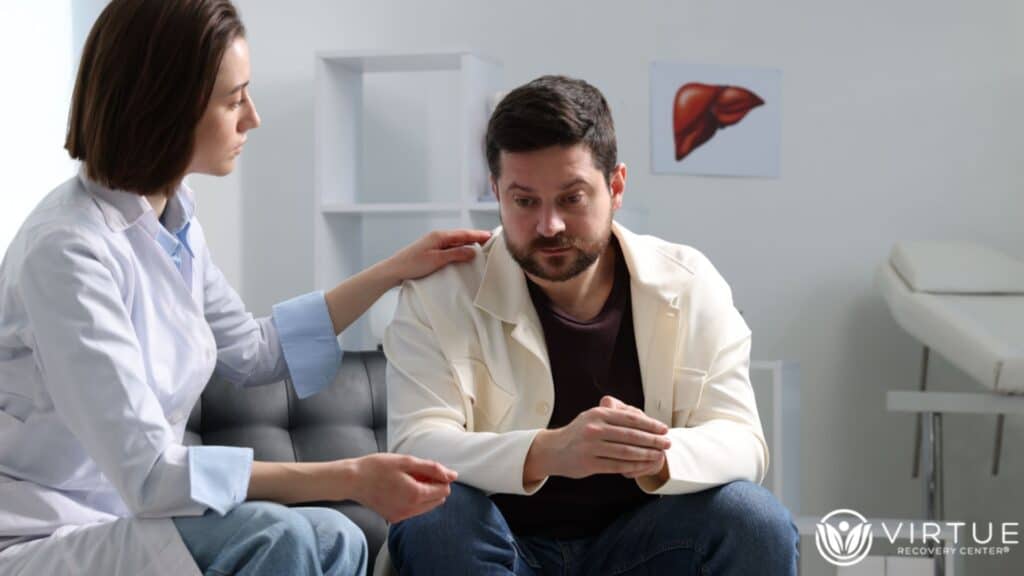
Table of Contents
Key Takeaways
- Family participation is key in cocaine addiction rehab to achieve greater success.
- Supportive family members and friends can provide emotional grounding, accountability, and motivation as you make your way through the program.
- Family sessions, and outpatient treatment program options ensure a whole body recovery.
- Family involvement in therapy improves communication, lowers the chances of relapse, and increases coping.
- Involving families in recovery also leads to better relationships and emotional health for both patients and family members.
Introduction
Cocaine dependence does not only affect the person, but impacts on their social and family context. There are higher chances of recovery if the family members are involved in the treatment. To make this easier, Cocaine addiction rehab centers that promote family participation seek to help with the emotional, behavioral and relationship issues underpinning an addict’s life as they take steps towards sobriety. Studies have shown that patients with family participation in treatment have better retention, compliance with therapy and less of a relapse potential. Rehabilitation programs with scheduled family meetings create a forum in which patients and their families can work through trust issues, develop an understanding of addiction, strengthen the connection that is so important for long-term recovery.How Can Cocaine Rehab Treatment Benefit From Supportive Family?
 A family’s support is a vital source of encouragement and accountability. Receiving advice and encouragement from your loved ones can provide support, affirm positive changes, and help you stay motivated when the going gets tough. Patients who participate in family-based therapies typically show better retention and lower rates of relapse.
Rehab Centers Have Family Involved In Your Treatment By getting family members involved, rehab centers work to set you up with expectations and rules outside of a treatment program. Families also learn about the disease of addiction and how to be supportive in a knowing and compassionate way. Rehab facilities like cocaine addiction rehab offers strategies that incorporate therapy and family education for the best possible results post-recovery.
A family’s support is a vital source of encouragement and accountability. Receiving advice and encouragement from your loved ones can provide support, affirm positive changes, and help you stay motivated when the going gets tough. Patients who participate in family-based therapies typically show better retention and lower rates of relapse.
Rehab Centers Have Family Involved In Your Treatment By getting family members involved, rehab centers work to set you up with expectations and rules outside of a treatment program. Families also learn about the disease of addiction and how to be supportive in a knowing and compassionate way. Rehab facilities like cocaine addiction rehab offers strategies that incorporate therapy and family education for the best possible results post-recovery.
What is the Purpose of Family Sessions in Recovery?
In family therapy, patients and their families are able to openly communicate in a controlled therapeutic environment which assists in rebuilding trust and insight. Such sessions often involve instruction on addiction, response and relapse prevention skills. The organized family involvement typically starts with medical detox where the patient is stabilized from withdrawal, and the family is educated about what that looks like. When engaged from the start, families help to calm and comfort patients as they heal, helping to alleviate pressure during this vulnerable period.How Can Families Support Loved Ones After Rehab?
Recovery doesn’t end at the rehab center. During the re-entry phase families are an important resource and this can often include outpatient treatment program where the patient receives ongoing therapy but attends to his/her daily life. Adherence and prevention of relapse are enhanced in the context of family support at this phase. Other strategies which are more practical in nature include being open with communication, monitoring progress, setting limits and pushing for engagement in activities that do not have the presence of alcohol. Education programs also instruct families how to identify early warning signs of relapse and allow an opportunity for intervention.What Are the Psychological Benefits of Family Involvement?
By involving the family, patients do not have to feel as if they are alone. Knowledge about addiction allows families to offer emotional validation rather than frustration or blame. Organized family participation enhances coping and reduces anxiety and develops empathy necessary for providing a supportive milieu. Patients frequently describe feel more motivated and supported when family members are participating in treatment. Programs can incorporate aftercare treatment to help keep families engaged for months following rehab. This continued practice helps maintain a no-relapse status and encourages further coping utilization in the home setting.How Do Family-Inclusive Programs Integrate With Other Treatment Methods?
Family therapy is also a supplement to other evidence-based treatment modalities, such as cognitive-behavioral therapy, individual counseling and medication-assisted treatment. Some programs in the include cocaine recovery educational materials for further understanding on the disease of addiction and to encourage relapse prevention. These resources allow families to understand the problems patients are battling and provide support based on knowledge. Through that dual focus, on the body and the mind, family inclusive programs provide a well-rounded approach to patients so they are able to receive the full spectrum of care while giving families-yet another support-education-wellness tool in their pockets when it comes to helping addicts maintain sobriety. Active family participation also reinforces coping strategies acquired in therapy, helping to reduce cravings and encouraging healthy behaviors.How Does Family Engagement Affect Long-Term Recovery?
Active involvement of family has impact on prevention of relapse and the recovery in general. Patients who feel the backing of friends and family are more likely to show up for scheduled therapy appointments, stick with treatment plans and make healthy lifestyle choices. In order to continue to promote accountability and responsibility towards the patient and family. Social support from family also enhances self-efficacy, emotional regulation and stress reduction in the progression of recovery.What Challenges Do Families Face in Supporting Recovery?
 It’s a difficult place to be, even though family involvment is a good thing. Guilt, frustration or helplessness can be felt by family members. Education of family members about addiction, counselling and open communication are key to tackling these areas. It is common to see workshops and support groups for families at rehab that also need support in their own emotional journey while being an effective source of love for their loved ones.
It’s a difficult place to be, even though family involvment is a good thing. Guilt, frustration or helplessness can be felt by family members. Education of family members about addiction, counselling and open communication are key to tackling these areas. It is common to see workshops and support groups for families at rehab that also need support in their own emotional journey while being an effective source of love for their loved ones.
Conclusion
Family participation is also an important part of successful cocaine addiction treatment. By including family members or friends in the treatment, education and aftercare process, relations between substance abusers can be enriched, thereby lowering risk of relapse and favorizing long-term recovery. For those looking for more integrated family-oriented care, Virtue Recovery Center offers an organized program to help families and their loved one. Call me today at 866-461-3339 to begin a transformative journey of healing with direction, empathy and long-term solutions.How can family involvement enhance the effectiveness of holistic approaches in cocaine addiction recovery?
Familienengagement spielt eine entscheidende Rolle bei der Unterstützung von Personen, die sich von Drogenabhängigkeit erholen. Durch aktives Zuhören und emotionale Unterstützung können Familienmitglieder das Vertrauen stärken und ein stabiles Umfeld schaffen. Dies verbessert die Ergebnisse von ganzheitliche ansätze zur bekämpfung von sucht, indem es den Betroffenen hilft, gesunde Bewältigungsmechanismen zu entwickeln.
FAQs
What is family participation in cocaine addiction treatment?
Family participation in therapy sessions, education and support groups to improve recovery.In what ways does family support decrease the risk of relapse?
Family support helps identify triggers, provides accountability and gives words of encouragement throughout the tough days.Is it possible for loved ones participate in all rehab meetings?
Attendance is not uniform, but treatment programmes often include structured family sessions and various educational workshops.What part does family play when out patient treatment?
Families support their children during outpatient treatment programs, track progress and aid in coping strategies practiced at home.Do you have any resources for families of cocaine addicts?
Yes, programs provide counseling, education seminars and online resources to help parents better support their children.Resources
- National Center for Biotechnology Information (NCBI). “Family Involvement in Substance Use Recovery,” 2019. https://pmc.ncbi.nlm.nih.gov/articles/PMC6803054/
- University of Maryland, Institute for Innovation & Implementation. “Recovery for Families: Strategies and Support,” 2020. https://www.iris.ssw.umaryland.edu/rc-family-recovery
- Grand Canyon University. “Family Dynamics, Addiction, and Recovery,” 2020. https://www.gcu.edu/blog/psychology-counseling/family-dynamics-addiction-and-recovery
Are You Covered For Treatment?
At Virtue Recovery Center, we understand the importance of accessible care. That’s why we’re in-network with numerous private insurance companies, ensuring that your journey to recovery is supported from the start. Let us help you quickly and easily verify your insurance coverage. Begin your path to healing today.
- About the Author
- Latest Posts
Gigi Price( Clinical Director )
Gigi Price holds licenses as a Master Social Worker and Clinical Drug Counselor. She completed her master’s degree in Social Work at Texas State University. Over the last decade, Gigi has been dedicated to utilizing evidence-based practices to enhance patient care and treatment planning, resulting in positive, long-term outcomes for patients and their families. Her passion lies in creating a treatment environment where professionals collaborate to bring about positive change and provide a safe, trustworthy therapeutic experience. Patients can be confident in receiving top-quality care under her leadership.
In her role as the Clinical Director of Virtue Recovery Houston, Gigi conducted research to identify the most effective approaches for treating patients with acute mental health diagnoses, PTSD, and Substance Use Disorder. She then assembled a team of skilled clinicians who could offer various therapeutic modalities, such as Cognitive Behavioral Therapy (CBT), Dialectical Behavioral Therapy (DBT), Acceptance and Commitment Therapy (ACT), Somatic Exposure, Eye Movement Desensitization and Reprocessing (EMDR), and Cognitive Processing Therapy (CPT). Gigi takes pride in overseeing the development and implementation of Virtue Houston’s Treatment Program, which includes two specialized therapeutic curricula tailored to the unique needs of individuals struggling with mental health issues, addiction, and PTSD.
How Cognitive Behavioral Therapy Supports Lasting Sobriety After Cocaine Addiction …
How an Eating Disorder Program Helps Manage Binge-Eating Episodes Key …
Key Takeaways Regular exercise reduces cravings and withdrawal symptoms. Physical …
Key Takeaways Veterans Day began as Armistice Day in 1918 …
Key Takeaways Proper nutrition plays a vital role in addiction …
Key Takeaways Long-term sobriety is achievable with evidence-based addiction treatment …


























